- Home
- Kay Hooper
Out of the Shadows Page 19
Out of the Shadows Read online
Page 19
Jeez, talk about tension.
Bishop hung up the phone. “The machine picked up.”
“Maybe she's in the shower.”
“Maybe.” Bishop returned to the window.
“But you don't think so,” Tony ventured.
For a minute it seemed he wouldn't answer, but finally Bishop said, “Something feels wrong.”
“Feels wrong how?”
“I don't know.”
“Feels wrong with Miranda?”
Bishop hesitated again, then nodded. “I used to— There was a time when I could feel what was going on with her. If she was happy or upset, I knew it.”
“That's what you're feeling now?”
“No, this is different. It's like I saw or heard something I wasn't consciously aware of, something that's nagging at me now. Something I know that's just out of my reach.”
“Something about Miranda?”
Bishop looked at the phone, his restlessness as clear as his reluctance to make a fool of himself. “I'll wait ten minutes and call again. In case she's in the shower.”
Tony caught himself drumming his fingers again, and stopped. “Yeah,” he said. “That sounds like a good idea.”
The hot water made Miranda feel better, and by the time she'd dried her hair and dressed in jeans and a bulky sweater, even her appetite had returned. She looped an elastic band around her wrist to use later in tying back her hair.
In the living room she turned the television on for background noise and weather reports. It was only then that she noticed the Ouija board lying on the floor.
She grabbed her gun instantly, wondering why the game was the only thing disturbed in the room. An intruder would have taken her gun, surely; it had been clearly visible. Why knock a game board to the floor?
With her shields up and defenses cut off, Miranda could sense nothing unusual in the house. Which meant she would have to move carefully, room by room, turning on the lights, checking windows and all the outer doors, looking into closets and corners.
There was a quicker and easier way, she told herself. It wouldn't matter if she dropped her shields for just a moment or two. Just long enough to get a sense of the house, to make sure she was alone.
Miranda didn't fully realize the great strain of keeping those shields up constantly for so long until she allowed them to fall. For just an instant, the ache in her head intensified—and then vanished like a soap bubble. Her ears actually popped as though she were coming down from a high altitude, and her vision blurred before becoming so sharp that she blinked in surprise.
The moment of well-being was wonderful.
What came next was agony.
She dropped the gun, both hands going to her head, the red-hot jolt of pain making her sway. Even stunned, she instinctively recognized an attack, knew that something, some energy, was trying to force its way into her mind. Just as instinctively she defended herself.
Her shields slammed back up, reinforced by sheer desperation, and in the same instant she made a violent mental effort to deflect that probing blade of energy. She almost saw it, white and shimmering and so rapacious it would cut its way into her. She almost saw it.
And then everything went black as pitch and as silent as the grave.
She never heard the phone begin to ring.
The last of Liz's customers left around nine-thirty, which gave her plenty of time to finish cleaning up before the snow got too bad. She left the front door unlocked, in case anybody needed to come in to use the phone, and kept the television above the counter tuned to local weather reports.
They weren't very encouraging, unless you liked a lot of snow.
Liz wasn't thinking about anything in particular, just letting her mind drift, when she suddenly understood what the white shirt meant.
Of course. Of course, it made perfect sense.
Her first impulse was to call Alex, but a moment's thought made her decide on a trip to the Sheriff's Department. So she worked hurriedly, locked the front door and turned out the lights, then let herself out the rear door and locked it.
She always parked in back, in an alley just a few steps from the door, even though Alex had told her to park in front whenever she worked nights. Liz never worried about it. Just a few steps, after all, and she'd never been afraid no matter how late it was.
It was cold, much colder than it had been just a few hours ago. And the snow was beginning to thicken and blow about as the wind whined restlessly.
Liz started her car, then got out to brush the snow off the windshield while it warmed up. Her wipers weren't the best, and the defroster wasn't very enthusiastic, so she thought a little manual help was in order.
“You're going home late.”
She turned with a gasp, then managed a shaky laugh. “And I have to go by the Sheriff's Department first. But what're you doing out—” Then she saw the gleaming knife.
“I'm sorry, Liz. I'm so sorry.”
She barely had time to realize that she'd been wrong about the shirt after all when she felt the cold steel of the knife slip into her body with horrifying ease.
FOURTEEN
At first, Miranda ignored the voice. It was distant and hardly discernible, and besides, she was too tired to care what it was trying to tell her. She didn't know where she was, but it was quiet and peaceful. She had no reason to worry anymore and just wanted to be left alone there.
Miranda.
At the extreme edge of her awareness, she understood that something was touching her. She didn't feel it yet somehow knew the touch existed. And without thinking about it, she realized that without the contact she wouldn't be able to hear … him … at all. Not that she was hearing him, not really. She understood what he was saying, but not because her ears told her.
That was strange. She considered it idly, still not caring but mildly interested in the puzzle of the thing. All her senses, she realized eventually, had shut down. Shut down completely, turned themselves off. And because of that, her body was turning itself off as well. She had the vague impression of a heartbeat slowing down, of lungs no longer drawing in air, and other organs ceasing to function.
Miranda, listen to me. Hear me.
She didn't want to listen to him. He would hurt her again. She knew he would. He would hurt her and she never wanted to be hurt like that again.
You have to let me in, Miranda.
Oh, no. She couldn't let him in. It was dangerous to let him in. Because he'd hurt her again and because … because it wasn't time. Why wasn't it time? Because … something else had to happen first. That was it. Somebody else had to die. There had to be five, that was it, that was why she had to wait.
There had to be five.
Please, Miranda. Please let me in. Something's wrong, you have to let me in.
No. She couldn't. She turned away from him and drifted back toward the peaceful darkness. But there was a tugging deep inside her that she hadn't expected, and it was painful. She wanted so badly to let him in, to feel what she had never felt with anyone but him. But that frightened her too, her own need, the hunger that shattered control.
She shied away from it, tried to escape the demands of emotions she didn't want to feel. Tried to break the gossamer thread that seemed to connect her to something … outside … something … someone …
Miranda … you're dying. Can't you feel it?
She didn't want to listen to that, because of course she wasn't dying. She couldn't die, not yet. There was something she had to do, something … important.
Except nothing seemed to matter very much to her. Not now. The darkness was warm and peaceful, and she knew that outside held only anguish and worry and grief. And him. Him, making her life painful and prickly with complications she didn't need. Him making demands. She was so tired.
Let me in … God damn you, let me in …
She almost got away, got free, that faint connection so wispy and frayed it couldn't possibly hold her any longer. But then defenses she was barel
y aware of gave way, and something grabbed her, captured her. Other gossamer threads swirled around her, and where each one touched her she felt a jolt that was pain and pleasure and certainty that seemed to her inevitable. Struggle though she did, she was drawn slowly but inexorably out of the peaceful darkness.
She felt the cold first, a cold that was bone deep, and she knew it had been the beginning of death. Then the slow, heavy beat of her heart, uneven at first, gradually steadying, becoming stronger. Her lungs drew in air in a sudden gasp.
And she was back.
Miranda thought her head was going to explode, and every nerve in her body throbbed. She was cold and she ached, but she could hear again, hear the wind outside whining around the eaves and sleet rattling against the windowpanes. A familiar softness beneath her told her she was in her bed, though she had no memory of being brought upstairs. She knew if she opened her eyes she would see her bedroom around her. And see him.
“Damn you,” she heard herself murmur.
“Damn me all you want, as long as you let me in.”
She felt his hands framing her face, felt his mouth moving on hers, and no matter how much she wanted to resist she knew she was responding to him. Her body was warming, the cold ache seeping away, and she could feel herself opening up to him, accepting him now willingly where before she had simply given way to his urgent insistence.
There was a hunger in her greater than her will to defy it. A hunger for him. His hands soothed her aching head and his mouth took hers in long, deep, drugging kisses more addictive than any narcotic.
“This isn't fair,” she whispered when she could.
“Christ, do you think I care?” Bishop's voice was hoarse.
Miranda forced her eyes to open. She thought she had seen him in every mood, thought she would have recognized any expression his face could wear, but this was a man she had never seen before.
“I didn't let you in.” She had to say it.
“I know.”
“You promised you wouldn't—”
He kissed her again and said roughly, “Do you really think there's anything I wouldn't do to keep you alive? Even if it gives you another reason to hate me.”
Miranda knew he'd find out soon enough that she didn't hate him, but she wanted to argue about this dying business because it didn't make sense to her. But his mouth was moving on hers and his hands were slipping beneath the covers to touch her, and all her consciousness focused on the need he was only feeding. Nothing else mattered.
Their eight years apart seemed to melt away, the clock turning back to a summer during which two new lovers discovered the most extraordinary intimacy either had ever known.
Their bodies remembered first, driven by an urgent hunger that had to be satisfied. Covers were pushed aside, clothing discarded, and they couldn't stop touching and tasting, couldn't get close enough to each other. It was familiar and yet new, their bodies altered by time and experience, more mature now, more aware of their mortality and less careless of life and the pleasures and pains it offered.
They explored the familiar and the different with the utter deliberation of two people who knew too well that each moment was a gift and that they might never get this chance again. They took what life and fate offered them.
Outside, the storm was building, wailing now, and inside there was warmth and intensity, another kind of force that raged silently.
It happened now as it had that summer so long ago, and Miranda was surprised and shaken all over again by the enormity of it. With the passionate physical joining came a mental union so deep and absolute it was as if their two souls merged and became a single entity.
In a flashing instant, Miranda saw his life in the years they had been apart, saw the pleasures and hurts of it, the triumphs and tragedies, the cases that had ended well and those that hadn't. She saw the faces of his friends and co-workers and enemies, saw the places he'd been and the things he'd done, and felt what he had felt. She knew that at the same time he was also reliving her life, her experiences.
It was a wildly exhilarating roller coaster of emotions, and coupled with the potent physical sensations of lovemaking, it pushed them toward an incredible peak so far beyond the reach of most humans that there were no words with which to describe the journey.
Except sheer joy.
Deputy Greg Wilkie was concentrating almost entirely on the tricky job of keeping his cruiser on the road, and probably wouldn't even have glanced into the alley if he hadn't been trying to keep a wary eye out for flying debris. He'd already nearly lost a side mirror to a flying branch. His only thought, when he saw someone moving around the car, was that Liz was leaving a bit late and that it was a good thing she had a front-wheel-drive vehicle.
He didn't worry much, but he was a serious young man and a dedicated, industrious cop, and on his next pass through town he was careful to check the alley again. He even altered his route so he could pass by Liz's house a few minutes later. Her car was parked in the driveway, and lights were on in the house.
Satisfied, he drove on.
One of the local pizza parlors had generously sent the last of the day's hot pies to the Sheriff's Department before the storm closed them down. And since the deputies expected to be awake most if not all night, none of them hesitated to scarf down pepperoni and onions even at ten-thirty.
“Sometimes I love my job,” Tony confided. Sitting back with his feet on the conference table, he shared a pizza with Alex and watched a small TV the deputy had brought in and plugged into the building's satellite system. “Who knew cheerleading competitions could be so … enthusiastic?”
“I think that's the point,” Alex observed.
“Ah. I've gotta get out more often.”
A faint stab of guilt made Alex say, “We should probably be watching the Weather Channel instead of this stuff.”
“Why? We know it's storming. We know that sooner or later the storm will pass. The patrols outside are reporting in regularly to alert us in case of real trouble. And—Wow. Will you look at how high they can throw each other?”
Alex checked his watch. “How long's Bishop been gone?”
“An hour, give or take. He said he'd call if there was a problem.”
“Maybe the storm—”
“These cell phones of ours work in anything short of atomic destruction.” He looked over to find Alex staring at him, and added, “Joke. But they're pretty dependable. It wasn't a government contract.”
“You have a strange sense of humor for a government agent,” Alex observed, momentarily distracted.
“I think of myself as a cop, not a government agent.”
“A psychic cop?”
Tony grinned. “I wondered when you were going to bring it up. Miranda told you, huh?”
“When I finally got around to asking, yes. But she didn't go into specifics about you guys. I mean, other than Bishop.”
“Ah. So you want to know if I'm sitting here reading your mind?”
“Something like that.”
“Nope. Not my thing. I just … pick up emotions from the immediate area.”
“Which explains your hunch about our conflicted killer?”
“More or less. I'm also very good at interpreting data in the usual way.”
Alex grunted and for several minutes stared at the TV. Then suddenly he said, “Randy told me she couldn't read me, but…”
“You feel exposed?”
“Yeah.”
Tony shrugged. “You shouldn't. If she says she can't read you, then she can't. I might be able to guess what you're feeling at any given moment, but most people give that away with facial expressions anyway. Sharon might know the keys she found on the floor belonged to you, but that's about it.”
“And Bishop?”
“I thought Miranda told you about him.”
“I don't have to be psychic to know she wasn't telling me everything.”
“Interesting.” Tony nodded. “Okay. Bishop's a touch telepath,
and a strong one. Stronger than Miranda. But he came to it later in life than she did. Some adepts don't really get a grip on their abilities until their twenties or so, whether because of denial or lack of practice, whatever. So even though he's stronger, she has more control. She was able to block all of us, even Bishop. A very rare ability, believe me.” Tony paused, then smiled. “And if you're worried about it, Bishop can't read you either.”
“Randy said she could read less than half the people she met, usually. I always thought this sort of stuff sounded like magic. But it has its limitations just like everything else, doesn't it?”
“Oh, yeah. Just another sense. For instance, you can't see things that are out of sight in the distance or hidden behind other things, and if your vision happens to be genetically bad, what you do see is out of focus. You can't hear sounds except those within a certain really limited range, and even then what you hear can be distorted. Your sense of touch is affected by temperature, whether you're male or female, and a dozen other things; and your sense of smell is not only severely limited compared to most other animal species, but is so subjective that your own brain can trick you into believing you do or don't smell something. Every single psychic ability has limitations in the same way.”
“Not magic at all.”
“Nope.”
After brooding about that for some time, Alex checked his watch again. “I'm going to give it another half hour, then I'll call Randy's house.”
“Suit yourself.” Tony was silent for ten of those minutes, then said musingly, “You know, there's been a lot of research done on psychic abilities in recent years. In putting our unit together, all sorts of tests and measurements were developed. We have files full of graphs and charts. Pages and pages of reports from doctors and psychologists and scientists. And case after case where psychic ability made the difference between success and failure. But for every fact there's a myth or a legend or just something we flat-out don't understand. Like telepaths, for instance. I've heard it whispered for years that when two telepaths make love, it's something pretty amazing. That it's like the difference between walking and flying—you get where you want to go either way, but once you've flown nothing else can ever compare.”

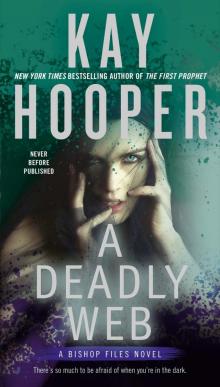 A Deadly Web
A Deadly Web Raven on the Wing
Raven on the Wing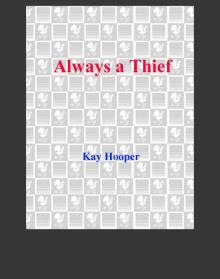 Always a Thief
Always a Thief Star-Crossed Lovers
Star-Crossed Lovers Blood Dreams
Blood Dreams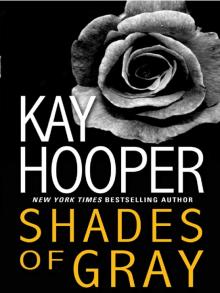 Shades of Gray
Shades of Gray Rebel Waltz
Rebel Waltz Chill of Fear
Chill of Fear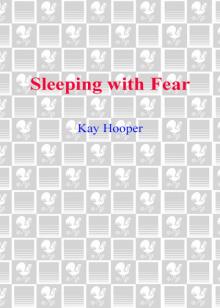 Sleeping With Fear
Sleeping With Fear After Caroline
After Caroline Time After Time
Time After Time Haunting Rachel
Haunting Rachel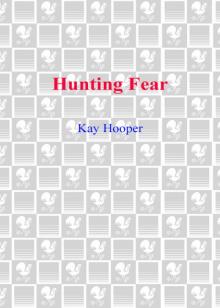 Hunting Fear
Hunting Fear Out of the Shadows
Out of the Shadows Whisper of Evil
Whisper of Evil Blood Sins
Blood Sins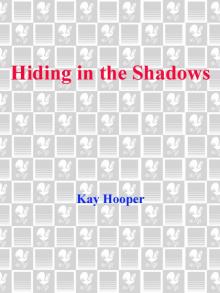 Hiding in the Shadows
Hiding in the Shadows C.J.'s Fate C.J.'s Fate C.J.'s Fate
C.J.'s Fate C.J.'s Fate C.J.'s Fate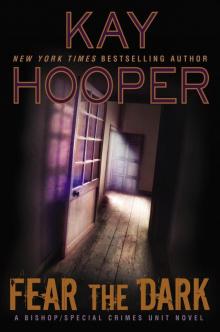 Fear the Dark
Fear the Dark Illegal Possession
Illegal Possession Stealing Shadows
Stealing Shadows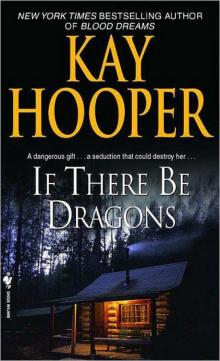 If There Be Dragons
If There Be Dragons Once a Thief
Once a Thief In Serena's Web
In Serena's Web On Wings of Magic on Wings of Magic
On Wings of Magic on Wings of Magic Hostage
Hostage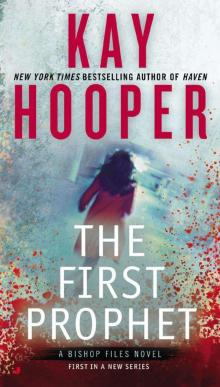 The First Prophet
The First Prophet Through the Looking Glass
Through the Looking Glass Golden Flames
Golden Flames Finding Laura
Finding Laura Haven
Haven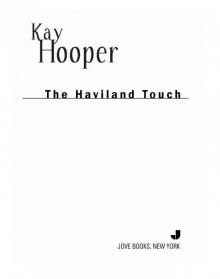 The Haviland Touch
The Haviland Touch The Lady and the Lion
The Lady and the Lion Haunted
Haunted Velvet Ligntning
Velvet Ligntning Blood Ties
Blood Ties Adelaide, the Enchantress
Adelaide, the Enchantress The Matchmaker
The Matchmaker Golden Threads
Golden Threads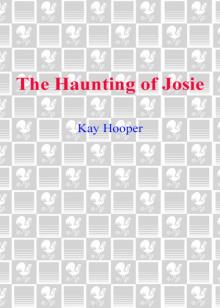 The Haunting of Josie
The Haunting of Josie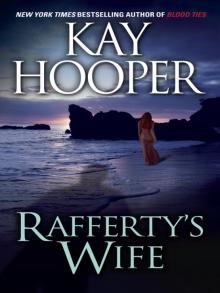 Rafferty's Wife
Rafferty's Wife Amanda
Amanda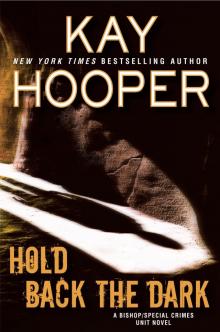 Hold Back the Dark
Hold Back the Dark Sense of Evil
Sense of Evil What Dreams May Come
What Dreams May Come Larger Than Life
Larger Than Life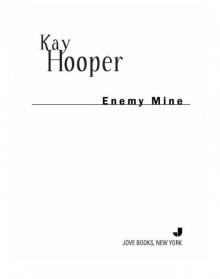 Enemy Mine
Enemy Mine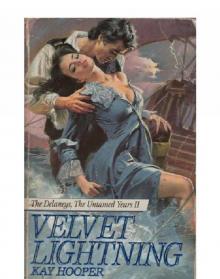 Velvet Lightning
Velvet Lightning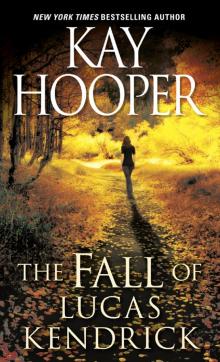 The Fall of Lucas Kendrick
The Fall of Lucas Kendrick Aces High
Aces High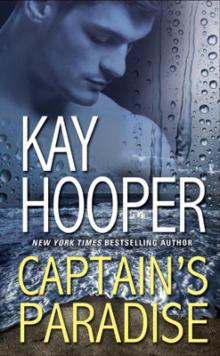 Captain's Paradise: A Novel
Captain's Paradise: A Novel The Wizard of Seattle
The Wizard of Seattle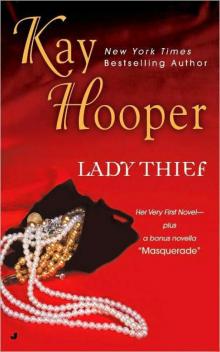 Lady Thief
Lady Thief Summer of the Unicorn
Summer of the Unicorn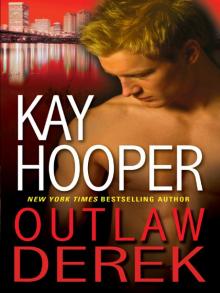 Outlaw Derek
Outlaw Derek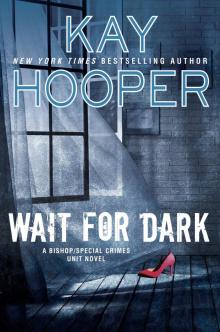 Wait for Dark
Wait for Dark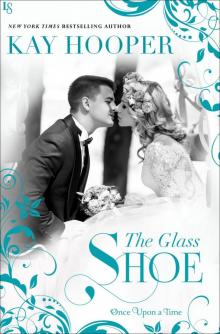 The Glass Shoe
The Glass Shoe It Takes a Thief
It Takes a Thief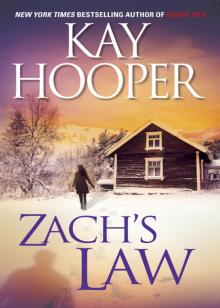 Zach's Law
Zach's Law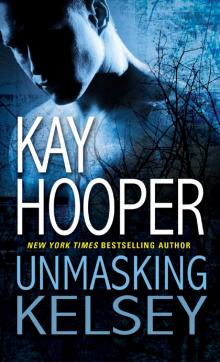 Unmasking Kelsey
Unmasking Kelsey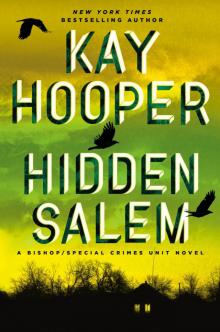 Hidden Salem
Hidden Salem